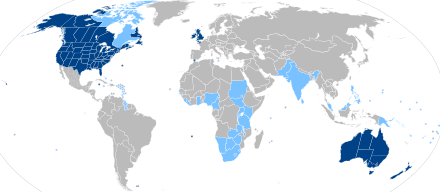Kari Dame
Kari Dame Doriq uxe de kesun daha Kari Igiris we (Kari Dame:English, Kari Tlu:英語), we kingal klegan na krkari Intu-Owcow . Mrengo kari Dame ka seediq Igiris, Amirika, Awco ma Kanada. 4000 mang kana hei ka tnkari Dame.

Alang skari Kari Dame
smmalu patasDndulan Kari
smmalu patas- Kari Amirika
- Kari Awco
- Kari Kanada
Patis
smmalu patas| Kari Dame | |||||||||||||||||||||||||||||
|---|---|---|---|---|---|---|---|---|---|---|---|---|---|---|---|---|---|---|---|---|---|---|---|---|---|---|---|---|---|
| A | a | B | b | C | c | D | d | E | e | F | f | G | g | H | h | I | i | J | j | K | k | L | l | M | m | N | n | O | o |
| P | p | Q | q | R | r | S | s | T | t | U | u | V | v | W | w | X | x | Y | y | Z | z | ||||||||
Pnskngalan Hnghengak(語音系統)
smmalu patasHengak Bubu (母音)
smmalu patas| berah | ckceka | bukuy | |
|---|---|---|---|
| nleban | ɪ i | ʊ u | |
| pcenga | e eɪ | ə (ɜ) | oʊ |
| rnwahan | æ | (ʌ) ɑ | (ɔ) |
Duma kari Igiris
smmalu patas| Kari Dame | Kari Seediq |
|---|---|
| Hello | Sndamac su (namu) bale! / Embiyax su (namu) hug? |
| Good Morning | Knrbuwan! |
| Good Night | Wan'an! |
| What is your name? | Ima ka ngayan su? |
| My name is ___ | ___ ka ngayan mu. |
| I am from ___ | Pneeyah ku ___. |
| Welcome! | Hwan'ing! |
| Goodbye | Swaye ta da! |
Kari Beyax Pusu Bobo Dheran
smmalu patasAll human beings are born free and equal in dignity and rights. They are endowed with reason and conscience and should act towards one another in a spirit of brotherhood.
"Kana seediq bobo dheran nii we, traguh kndalax pnttingan ta; mntena ka beyax pusu ta. Pniqan gnkela ka knkingal seediq, kiya ka, asi ta ka mntena mptswayi mggaalu ma mptbale msuupu." (Tg1 patis, Kari Beyax Pusu Bobo Dheran)
Papak
smmalu patasPatis pnyahan
smmalu patas- Aarts, Bas; Haegeman, Liliane (2006). "6. English Word classes and Phrases". In Aarts, Bas; McMahon, April (eds.). The Handbook of English Linguistics. Blackwell Publishing Ltd.
- Aitken, A. J.; McArthur, Tom, eds. (1979). Languages of Scotland. Occasional paper – Association for Scottish Literary Studies; no. 4. Edinburgh: Chambers. ISBN 978-0-550-20261-1.
- Algeo, John (1999). "Chapter 2:Vocabulary". In Romaine, Suzanne (ed.). Cambridge History of the English Language. Vol. IV: 1776–1997. Cambridge University Press. pp. 57–91. doi:10.1017/CHOL9780521264778.003. ISBN 978-0-521-26477-8.
- Ammon, Ulrich (2006). Language Conflicts in the European Union: On finding a politically acceptable and practicable solution for EU institutions that satisfies diverging interests. International Journal of Applied Linguistics. Vol. 16. pp. 319–338. doi:10.1111/j.1473-4192.2006.00121.x. S2CID 142692741.
- Ammon, Ulrich (2008). "Pluricentric and Divided Languages". In Ammon, Ulrich N.; Dittmar, Norbert; Mattheier, Klaus J.; et al. (eds.). Sociolinguistics: An International Handbook of the Science of Language and Society / Soziolinguistik Ein internationales Handbuch zur Wissenschaft vov Sprache and Gesellschaft. Handbooks of Linguistics and Communication Science / Handbücher zur Sprach- und Kommunikationswissenschaft 3/2. Vol. 2 (2nd completely revised and extended ed.). de Gruyter. ISBN 978-3-11-019425-8.